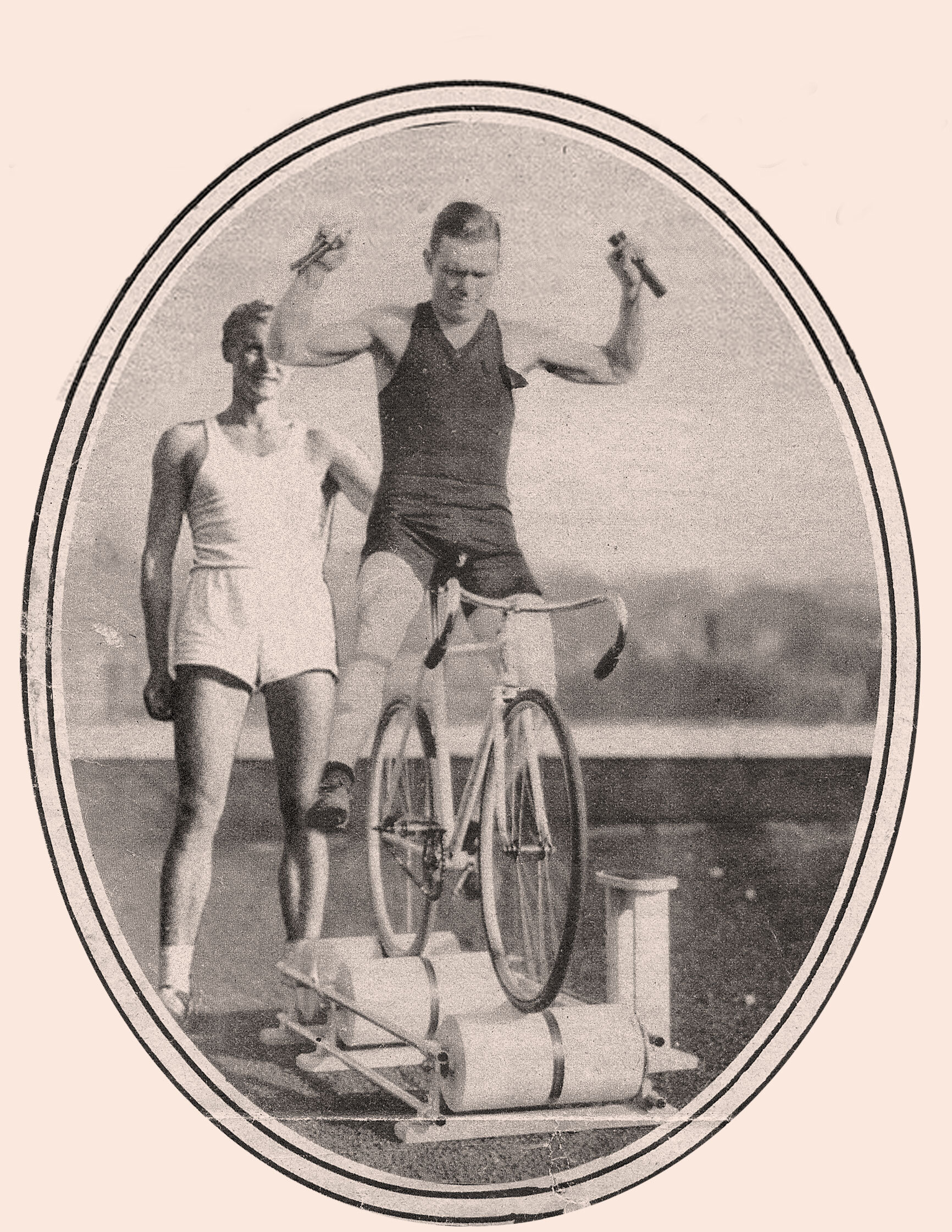No Pain, No Pain

Exercise can kill you.
This shouldn't come as a surprise to you. The fact is, pretty much anything can kill you. The byword of modern medicine is a famous misquotation: only the dose makes the poison. This is true of blood pressure medicine, insulin, and antidepressants as much as it's true of water, oxygen, potatoes, heat, and whatever else you care to name. Everything, EVERYTHING, has the potential to kill you, if you get it in the wrong amounts, or exposed to the wrong part of the body, or at the wrong moment. Exercise, which your doctor probably tells you is the single most important thing you can do to maintain both your physical and mental health, is no exception. I'm not talking about the sedentary, obese man who takes up strenuous aerobics and suffers a heart attack... I'm talking about how too much exercise can kill your level 10 fighter with a Constitution score of 18, three hundred hit points and the Fortitude save of a young god.
Let's talk about rhabdomyolysis.
Take a moment to read that word to yourself once or twice, because if you don't have a science background, it can be a very intimidating word. It's long, complex, sounds vaguely like Latin (Greek, actually, but whatever), and may not have an immediately apparent meaning. Take heart, though, because it's actually a very simple concept. To start, let's work out what the word literally means. If you speak Greek -- and I don't, outside of medical terminology -- then you might already have an inkling. One of the nice things about medical terminology is that what seems unnecessarily complex is often merely descriptive. In the case of rhabdomyolysis, rhabdo and myo together refer to striped muscle, the type of muscle that most people think of when they talk about muscle, and lysis refers to the breaking down of a thing. Rhabdomyolysis is the process of breakdown of muscle tissue... that's it. Simple. Very few parts of the body are capable of true regeneration, and most body tissues are constantly being taken apart and put back together again. Every time you use your muscles, they tear just a little bit, and the body copes with this by constantly breaking them down and rebuilding them. Generally, only tiny fractions of your muscles are breaking down at a time, but all sorts of things can cause it to become widespread. One very common cause is excessive exercise. If you've ever done a solid two-hour workout and noticed afterwards that your urine was brown instead of yellow, that's because your body was eliminating broken-down muscle products. This doesn't have to come from exercise, as there are other things that can force the muscles into overuse. On my most recent shift if the pediatric emergency room, I was peripherally involved in the care of a little boy who'd had a several huge seizures. As a result of uncontrolled tonic-clonic movements, he was suffering from rhabdomyolysis. Finally, a number of types of injury damage the muscles, including crush injuries and exposure to numerous poisons.
Now obviously, you don't have to go to the hospital every time you do a solid workout, so we can infer that rhabdomyolysis isn't dangerous in and of itself. As with many body processes, it's dangerous because of something it causes. When muscle breaks down, all the little bits and pieces of waste protein get picked up by the bloodstream and get whisked off for elimination, and as is the case with many of the body's wastes, they get picked up by the kidneys. The kidneys, amazing feats of engineering though they are, are essentially very sophisticated and efficient filters, and as anyone who uses a clothes dryer knows, filters get clogged. Unfortunately, the kidneys are very delicate, and the huge molecules clogging them cause damage. Too much waste protein, or not enough water to wash them out, and the kidneys stop working, which we call “acute renal failure.” It's usually reversible, but it's not at all good.
On the plus side, as you may have gathered from that very brief and superficial description of your kidneys function, the treatment is straightforward: hydration. This is exactly why your usual exercise regimen doesn't cause you any meaningful harm or, for that matter, unusual colouration of urine: people who exercise generally know that they need to keep hydrated, and this is one reason why. Most people do just fine given fluids by mouth. In the hospital, they generally give intravenous fluids because it lets them know exactly how much is going in. Rarely, the renal failure progresses so badly that people may actually need dialysis, but this is unusual outside of the context of severe physical trauma.
Rhabdomyolysis is why people who sustain terrible injuries, especially from a crushing source, may die shortly after, even though the actual injuries seem stabilized. It's one reason why exercise in extreme heat can be dangerous. It's the basis for quite a number of laboratory tests. It's why you can really freak a player out by saying that a character's urine is brown, shortly before the much scarier symptom of the character no longer passing urine at all.
Just goes to show, exercise is bad for your health.
Four years ago, Dr. Eris Lis, M.D., began writing a series of brilliant and informative posts on RPGs through the eyes of a medical professional, and this is the one that appeared here on May 18, 2013. Lis is a physician, gamer, and author of the Skirmisher Publishing LLC OGL sourcebook Insults & Injuries, which is also available for the Pathfinder RPG system.






